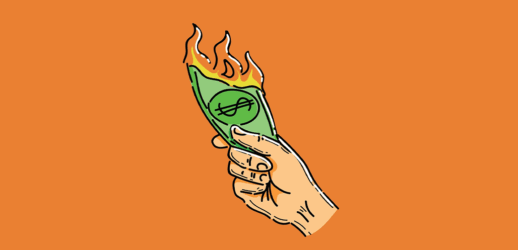Distractions—a constant in the workplace, a thorn in a boss’ side, the enemy of the common employee. While a few workers may be able to power through for eight hours, with only a short lunch break and a phone in their bag all day, distractions are inevitable.
A text comes in. You check social media. Your G-chat is beeping. While many claim to jump from task to task without distractions affecting work, it’s very difficult.
But what if distractions weren’t the end of the world? In fact, what if certain “distractions” could actually help you? Productive procrastination may speed up your work flow, spur creative ideas and increase your productivity. These eight tips may just be the push you need to be your best self at work.
1. Take breaks in spurts.
Working for eight hours straight isn’t realistic, most of the time. So, take a walk around the building or respond to your personal texts. If your employer permits, choose a time frame—for example, after every 40 minutes you work, take a five-minute break. It’s like a refresh for your brain.
2. Talk to co-workers.
Obviously, don’t distract those who are in the middle of a project. But having a brief conversation with colleagues is a minute or two of face-time, rather than screen-time. And talking with co-workers about what you’re working on can fuel collaboration.
3. Listen to an upbeat song.
Pump yourself up before starting on the second portion of your project. Studies show that listening to music can increase productivity. Just make sure it’s not something that will pull you away—if you tend to slow down when listening to music with lyrics, choose an instrumental version of the song instead.
4. Grab a cup of coffee.
The caffeine will spike your adrenaline levels, increasing your ability to crank out event proposals in a shorter amount of time and keeping you awake to power through early-morning meetings.
5. Eat lunch away from your desk.
Lunch is a sacred time, and while your colleagues may believe they’ll get more done while eating lunch at their computers, it will only take away a break for the brain. Sit away from your computer and take your time eating your sandwich, then come back ready to tackle the next item on your to-do list.
6. Break up big tasks.
While many say to start with the most important task and see it through to the end, sometimes it’s nice to divide it into a set of smaller tasks. Powering through may be admirable, but it’s not always practical. Make a short phone call in between post-event reports to feel a sense of accomplishment.
7. Write down your distractions.
Every time a new distraction pops into your brain—be it a chore you need to do or a friend you need to call back—write it down somewhere. Acknowledge the distraction, dedicate 20 seconds to focus on it, then let it go until you can deal with it.
8. Make a list.
Prioritize which projects, both big and small, need to be tackled that day, and which ones can be held off until later. Then, estimate how much time those later tasks will take. If you finish your must-do-today list, continue on to your must-do-tomorrow list. Work for the allotted amount of time, then move on to the next one. The next day, you’ll feel relief seeing you’ve already started on each one.




